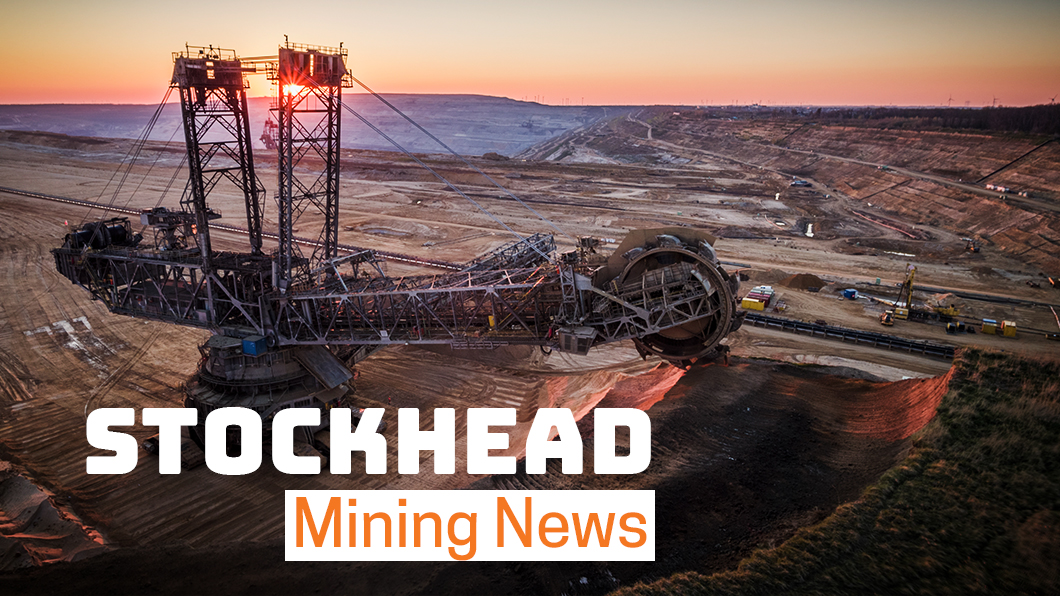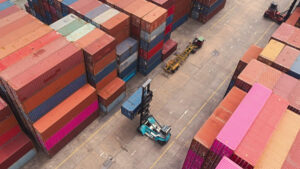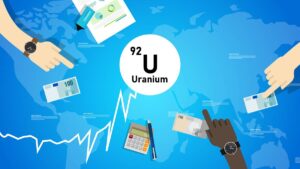Why you should look for mining stocks that are adopting blockchain

Pic: Schroptschop / E+ via Getty Images
The origin of commodities used in products like electric cars and phones is becoming a big consumer issue — but also a big opportunity — for resources companies, says a top expert.
“Probably the newest dimension [in mining] now is integrity – everyone is talking about it now in the supply chain space and it appears that consumers are demanding it,” says Cameron Scadding, executive chairman of Source Certain International, which helps companies verify the integrity of their supply chains.
“I don’t think in the history of the extractives industry we’ve ever had a time like now where actual consumers want to know where stuff comes from.
“We’ve now got this situation, and an immense opportunity I believe, certainly in metals like cobalt where the value promises and the actual values that are on that product actually matter.”
The origin of cobalt is becoming a major consumer issue because of the use of child labour in some countries like the Congo, which supplies around 60 per cent of the world’s supply.
Companies such as Apple — which needs cobalt for its phone batteries — are putting pressure on suppliers to prove they buy from ethical miners.
The London Metal Exchange recently launched its own investigation into whether or not any of the cobalt it was trading came from unethical sources.
Is blockchain the solution?
The popular solution at the moment appears to be so-called “blockchain technology”.
Blockchain is best known as the basis of cryptocurrencies such as bitcoin. But it has many other potential applications such as securing digital contracts and supply chain data.
The technology allows a publicly available, tamper-proof, traceable record of digital transactions that can be automatically logged in the physical world using radio frequency ID tags (RFIDs).
In the past couple of years, “several billion dollars” has been invested in blockchain, according to Rob Hanson, a senior researcher at CSIRO’s Data61.
In PwC’s 2018 survey of 600 executives from 15 territories, 84 per cent said their organisations had at least some involvement with blockchain technology.
Blockchain will generate an annual business value of more than $US3 trillion ($4.1 trillion) by 2030, research and advisory firm Gartner predicts.
Diamonds protected by blockchain
The technology is already being used in the diamond industry.
A company called Everledger, which was created in 2015 by an Aussie – Leanne Kemp, has built a global, digital ledger that tracks and protects diamonds.
Everledger collects an asset’s defining characteristics, history, and ownership to create a permanent record on the blockchain.
This information is used by various stakeholders across a supply chain to provide certainty of the source and verify authenticity.
- Subscribe to our daily newsletter
- Bookmark this link for small cap news
- Join our small cap Facebook group
- Follow us on Facebook or Twitter
“Blockchain offers more visibility into the supply chain, making procurement and deliveries simpler, more accurate and more reliable,” Chief Olusegun Obasanjo, the former president of Nigeria, told delegates at the annual Africa Australia Research Forum on Tuesday.
“The future of blockchain is still undetermined. However, the technology is evolving quickly, and so far it is clear there are compelling cases for the mining, metals and connected value chains.”
Blockchain can essentially act like an anti-fraud tool while also assuring consumers that their purchases are not supporting unethical issues surrounding the mining of certain commodities.
Perth-based rare earths developer Arafura Resources (ASX:ARU) has begun exploring the use of blockchain technology because it expects future customers will require suppliers to verify the origin of high-tech, strategic materials.
Arafura is an emerging producer of neodymium-praseodymium (NdPr) – rare earths used to make ultra-strong magnets for micro-motors in the electric components of cars, such as seats, mirrors, wipers, steering and braking.
Most rare earths are sourced from China where there are reports of unsafe, unethical and environmentally unfriendly work practices.
Hastings Technology Metals (ASX:HAS) revealed in May that it will start designing a supply chain platform based on blockchain’s so-called “distributed ledger” technology.
The company wants to used blockchain to trace and track mixed rare earth carbonate from its Yangibana mine.
Finance director Guy Roberston told Stockhead previously that Hastings had done considerable work on the tech already, and it will be ready for use when the company starts production in 2020.
UNLOCK INSIGHTS
Discover the untold stories of emerging ASX stocks.
Daily news and expert analysis, it's free to subscribe.
By proceeding, you confirm you understand that we handle personal information in accordance with our Privacy Policy.








